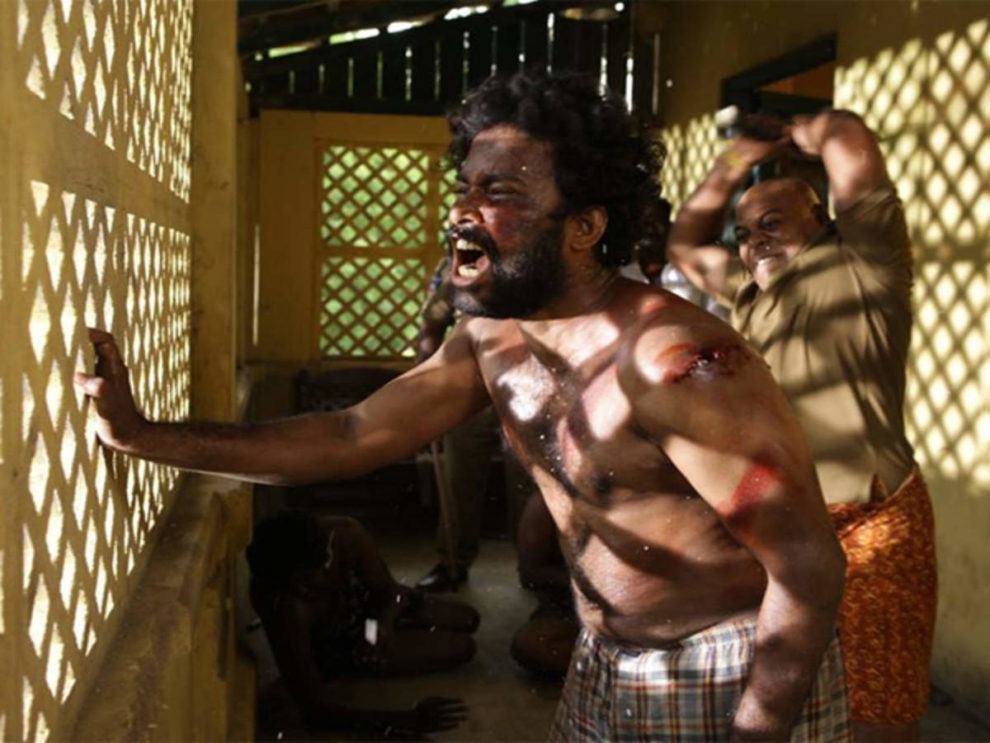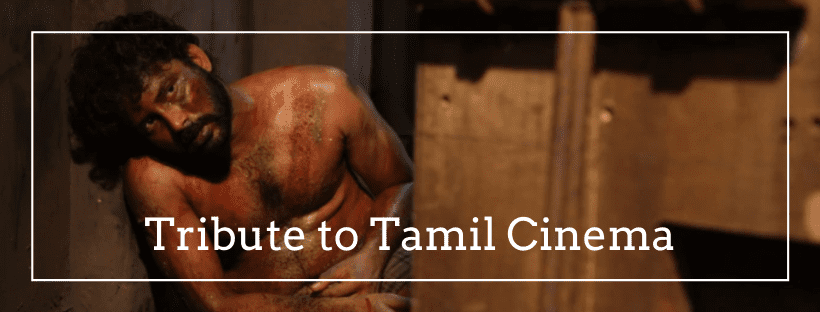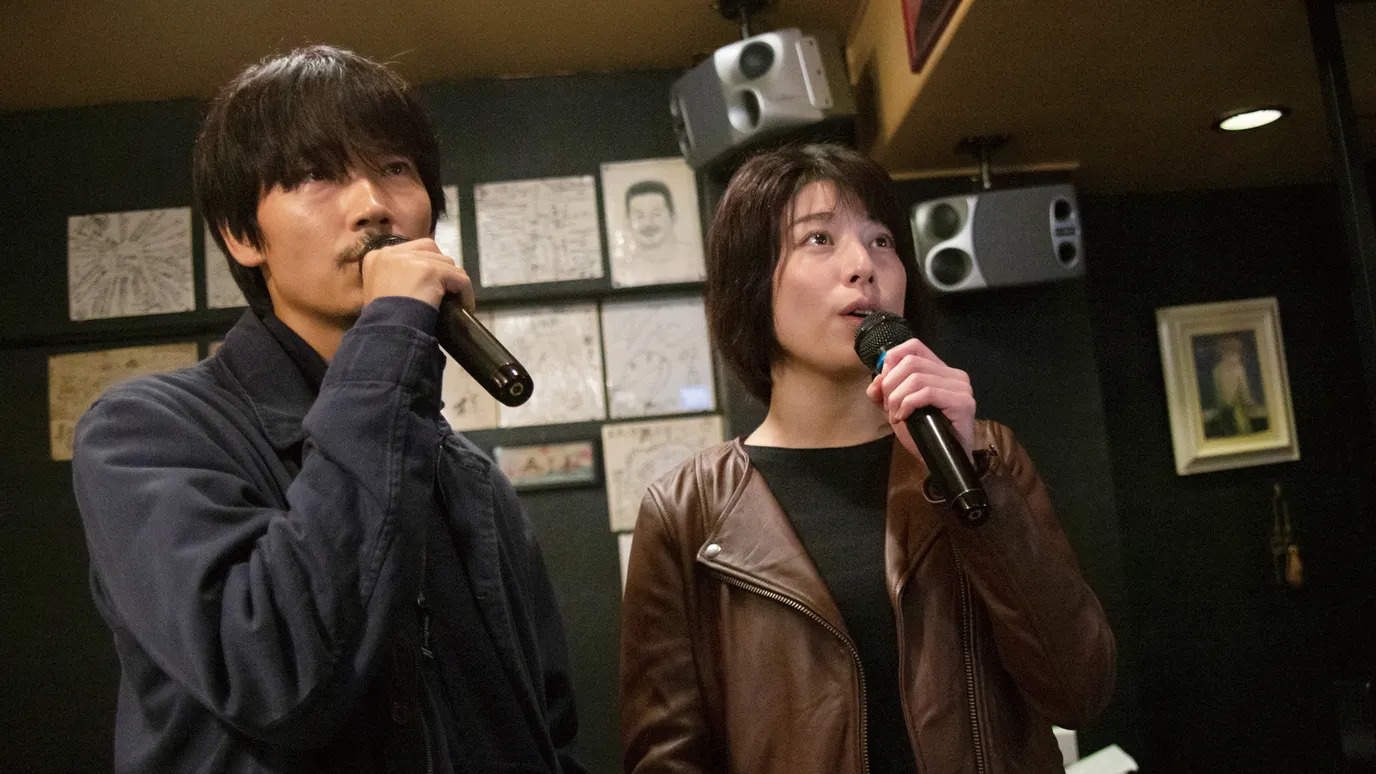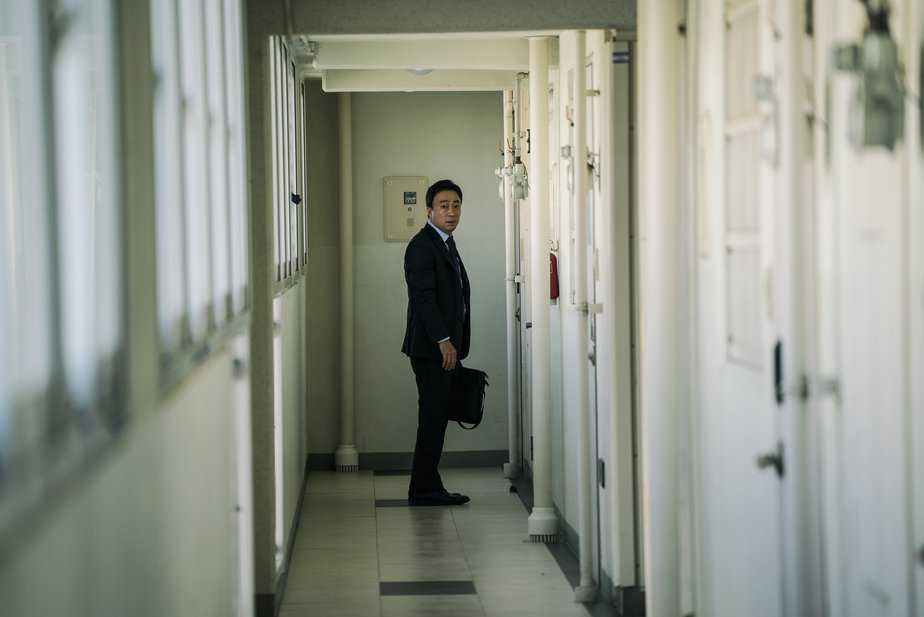“Interrrogation” was the winner of the Amnesty International Italia Award at the 72nd Venice Film Festival and of Best Feature Film in Tamil, Best Supporting Actor for Samuthirakani and Best Editing for the late Kishore Te, among a number of other awards. Aka “Visaaranai” was also India's official entry for the Best Foreign Language Film at the 89th Academy Awards and one of the most celebrated Indian productions of the year.
The script is based on Chandra Kumar's fact-based novel “Lock Up” and is actually split in two distinct parts, to the point that if it was not for the same main characters, we could easily discuss about two different movies. In the first one Pandi, Murugan, Afzal, and Kumar are Tamil laborers who are working in Guntur, and living in a nearby park, with no roof under their heads, while working odd jobs to make ends meet. One night, and for no apparent reason, police officers pick them up, strip them of their clothes and start beating them before throwing them in a cell, without any explanation. As soon as Inspector Rao appears in the precinct, the reason for their “arrest” is revealed. A house of a rich man in the area was recently looted, and the police want to close the case as soon as possible, no matter who the real culprit is, under political influence. Thus, a non-stop succession of torture begins for the Tamils, who are repeatedly asked to confess to a crime they did not commit, even by people they consider friends, like Pandi's employer. When the moment they appear on court arrives, however, everything turns upside down, with three of them ending up in Tamil Nadu, cleaning the police precinct of the officer who helped them, while witnessing a case quite similar to their own, although far more complicated. Kumar is the one who was dropped on the road to Chennai before the rest arrived in the precinct, and the one who is eventually revealed as the narrator of the story.
Vetrimaaran directs a film where unfair violence is the main ingredient. Despite the fact that the scenes are not particularly graphic (no blood, for example) the impact is quite severe, particularly through the realism of his approach and the “dry” pragmatism he implements in order to show the events. The impact is heightened by the excellent work done in the sound department, which actually communicates the grotesqueness of the police actions in the most eloquent way, stripped though, by any kind of “idealization” of violence.
The claustrophobic setting of the dark cells, the fact that the protagonists do not know for a long time what is going on, and even then, if they ever manage to escape, also creates an atmosphere of a thriller, which finds however, its apogee in the second part, in Tamil Nadu, where the action takes a whole more brutal turn. That despite the change in setting and the police officers, the tactics remain the same, is where Vetrimaaran's main comment lies, with his critique of police tactics, but also of the politicians that are hidden beyond them, being realistic, as it is pointy, in a no punches-pulled approach that caused quite a stir among the police leadership upon its release. That the same things happen in two different areas of India is a comment that states that the situation has nothing to do with race, language, or geographical reasons, but with the system implemented by the corruption of the police and the politicians.
At the same time, the way the prisoners react to their benefactor's bid immediately after their release is also a comment on human nature, as much as the dog-eat-dog world the protagonists inhabit, where even their sense of gratitude is turned against them.
That DP Rama Lingam has managed to present all settings through a prism of constant danger is a testament to his excellent work, particularly due to the different settings appearing in the film. The combination of lengthy single shots and frequent cuts on occasion also works quite well for the narrative, allowing it to function both in documentary-like fashion and as fiction. Kishore Te's excellent editing implements this approach in the best way, while his frequent cuts induce the movie with a rather fast pace that adds to the entertainment it offers.
The acting is also on a very high level. Dinesh as Pandi highlights his ignorance, despair, resolve and fear in the most convincing fashion, while Kishore Kumar as the man imprisoned in the second part is the ideal “victim” and Ajay Ghosh as the inspector the ideal “villain”. Samukathirani as Muthuvel, the officer-benefactor is also excellent, with him highlighting the ambiguity of his character in the best fashion. The job done in the casting is impressive, with the actors fitting their roles also due to their physique.
Even if the transition between the two parts is not exactly ideal (initially the director had announced that the film would be an experimental one lasting just 60 minutes), “Interrogation” emerges as an impressive movie, that highlights its deeply political comments in the most eloquent fashion, while offering equal amounts of entertainment.
















